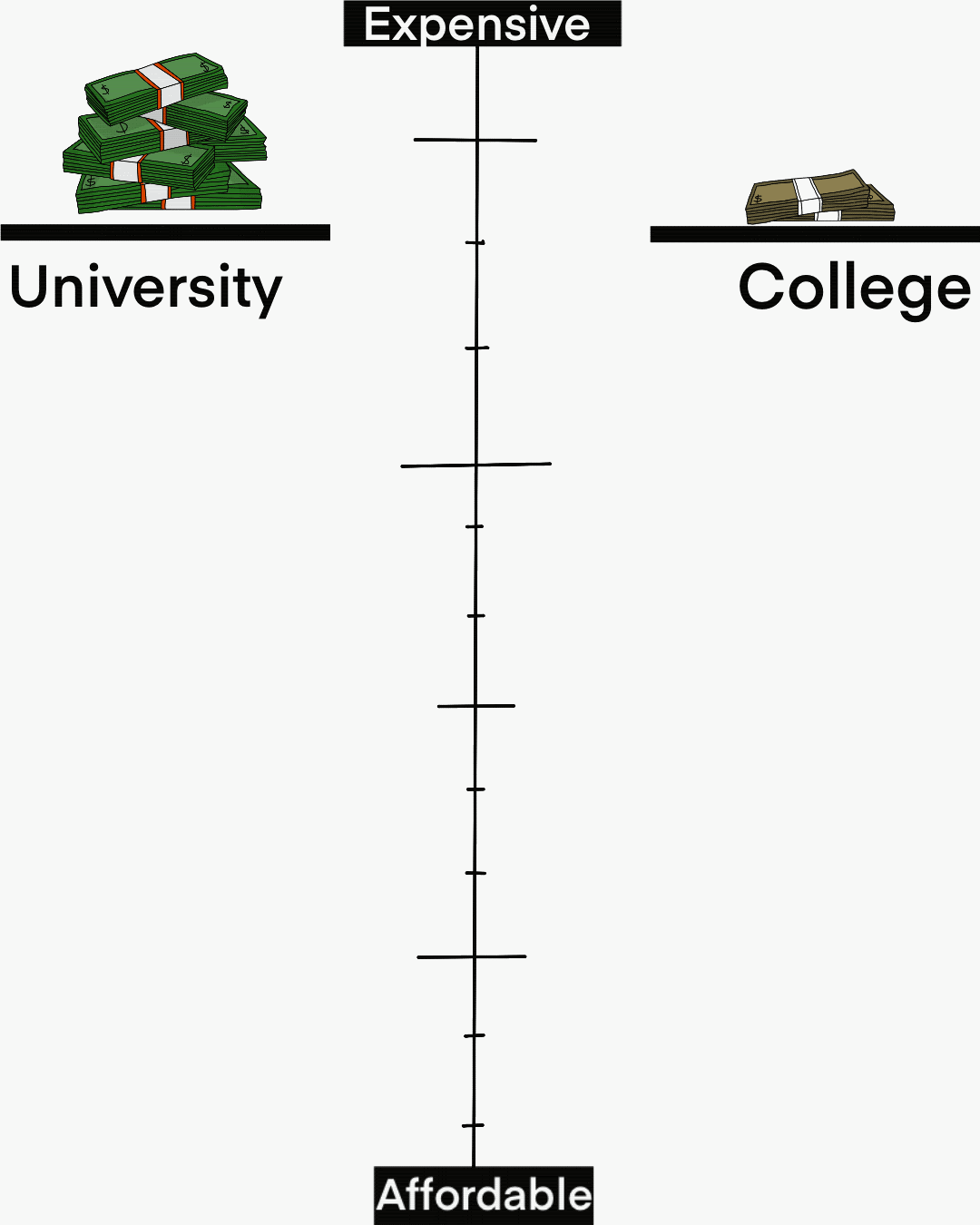Picking between going to college or university is a dilemma for many high school students or graduates who are still in the midst of deciding what career they want to pursue. Although making a career choice is a life-changing decision, the weight of that decision does not have to be something you have to carry for the rest of your life.
We are long past the days of working the same routine job again and again each day. As socioeconomic and technological changes cause workplaces to transition over time, so do job titles, business operations and work responsibilities evolve to suit new norms.
Taking college courses or programs that focus on enhancing your skills in a reasonable amount of time is an effective way to start or advance in your career. This article discusses the different reasons that make a career college a worthy endeavour:
- Short-Term Commitment With A Long-Term Value
- Colleges Are More Affordable Than Universities
- No Added Costs To Fulfill The General Education Requirements
- Invest In The Future Of Your Career
- Conveniently Network At A Faster Pace
1. Short-Term Commitment With A Long-Term Value
Although making a career choice is a life-changing decision, you don’t have to commit to at least four years of education to make your dreams come true. Career colleges shorten the time it takes to be a professional in your field by focusing on the courses necessary to hone your craft.
College programs that have practicums embedded in their curriculum is a step up from a program that doesn’t, because practicality is really what it’s all about. Graduating with work experience along with the education that made you a successful hire tells employers that you are a credible professional, and not just a new grad.
2. Colleges Are More Affordable Than Universities
Since the duration of study from a college program is shorter, it makes for a more affordable option than university. When universities in Canada may charge at least $48,000, depending on your program, for a four-year undergraduate degree, colleges may only charge a fraction of that number, which also depends on the school, program and area you live.

3. No Added Costs To Fulfill The General Education Requirements
General education requirements are part of what makes a university degree. These requirements may take anywhere from a year to a year and a half to complete. General education requirements give university students the opportunity to explore other courses outside of their field of study, which can include foundational courses like English, math, science and history, or more specialized courses like filmmaking, computer science, business and more.
If you don’t want to pay for the additional courses that make up a degree, getting a college diploma is a good way to save up and focus on the courses that help you build expertise in your chosen field.
4. Invest In The Future Of Your Career
Creating a future-proof career is endless work. But if you enjoy the work, it shouldn’t seem like work at all. But this is another reason why career colleges are beneficial, because it does not have to take a long time for you to make a career change, start a new career or advance in one. Change is inevitable and it is upto you to decide what are the best ways to cope with that.
Expanding your expertise in areas related to your work is a good way to start investing in your long-term career. If you are not sure of what areas to expand on, review the job listings of high ranking job positions and see what areas you can cover to be more qualified for roles you’d like to pursue.
5. Conveniently Network At A Faster Pace
College programs don’t have to be as hectic as university programs. The focus on practicality in career colleges allows you to start your career earlier, even while you are in school in order to network faster, gain clients and meet people in industries you’d like to be a part of. You don’t have to gain advanced knowledge in your field just to start working, rather work with others who can work with your current set of skills and build your way from there. In a short period of time, you can develop your knowledge and experience in a matter of months, and be fully prepared to take on more advanced projects by the time you graduate.
About The Author

Private Career College
ABM College is a leader in career-focused education, committed to empowering students with industry-relevant skills. With expert instructors and practical training, ABM College delivers high-quality programs in health, business, technology, and more, ensuring graduates are prepared to meet workforce demands. Known for its supportive learning environment and a focus on real-world application, ABM College is a trusted educational partner helping students achieve professional success across Canada.
